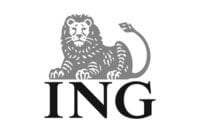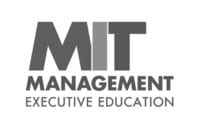How to Continuously Evolve as a Leader: Staying Adaptable and Open to Growth
Leadership is not a one-time achievement; it’s a continuous journey of learning, growth, and adaptation. As leaders, we face new challenges and opportunities daily, which means we must be willing to evolve, stay adaptable, and keep learning. Great leadership is not static; it’s dynamic, requiring us to stay open to new perspectives and approaches.
In this article, we’ll explore why continuous growth is essential for long-term leadership success and provide actionable tips on how to remain adaptable, seek feedback, and evolve throughout your career.
"The only thing that is constant is change."
Heraclitus, Ancient Greek Philosopher
Why Continuous Growth Matters
Leadership today is rapidly evolving. The pace of change in the workplace, technology, and society means that leadership must constantly evolve. If leaders don’t evolve, they risk becoming stagnant, disengaged, or disconnected from the needs of their teams.
The best leaders are those who are committed to lifelong learning. They understand that leadership effectiveness is not about reaching a certain destination but about adapting to new challenges and continuously seeking opportunities for improvement. Continuous growth ensures that leaders can respond to change, manage new complexities, and support their teams effectively.
Embracing Feedback and Self-Reflection
One of the most powerful tools for continuous growth is feedback. Leaders who are open to feedback are able to identify areas for improvement, celebrate successes, and make adjustments when necessary. Self-reflection is equally important. By regularly taking the time to assess your own performance, you gain deeper insights into your strengths and blind spots.
To enhance your growth, seek feedback not just from your team but also from peers, mentors, and even outside sources. Use this feedback as an opportunity to evolve your leadership approach.
Adapting to Change and Staying Resilient
Resilience is an essential trait for any leader. Adapting to change with resilience allows you to navigate challenges and unexpected obstacles. Just as a plant bends with the wind without breaking, resilient leaders embrace change, learn from it, and continue moving forward with a renewed sense of purpose.
Staying flexible and open to change is critical, whether it’s adjusting your leadership style, embracing new technologies, or learning from failures. The more adaptable you are, the more capable you’ll be of leading your team through transitions and uncertainty.
Investing in Lifelong Learning
Being a leader means being a student for life. Lifelong learning should be an ongoing part of your leadership journey. Whether you’re reading books, attending workshops, taking courses, or seeking mentorship, continual learning sharpens your leadership skills, broadens your perspective, and prepares you for future challenges.
Investing in your own development ensures that you remain relevant and effective as a leader. Look for opportunities to develop new skills, expand your knowledge base, and challenge yourself in ways that push you out of your comfort zone.
Creating an Adaptive Leadership Mindset
The most effective leaders adopt an adaptive mindset. This means being open to feedback, taking risks, and accepting that change is a part of the process. Curiosity is a big part of this mindset—asking questions, seeking new ideas, and staying curious helps you lead effectively and fosters a culture of learning within your team.
By cultivating an adaptive mindset, you not only improve as a leader but also set the stage for your team to thrive. The ability to evolve and stay open to change is what will keep you at the forefront of leadership success.
Practical Steps to Keep Evolving as a Leader
- Seek feedback regularly from your team, peers, and mentors.
- Make self-reflection a habit: regularly assess your strengths and areas for improvement.
- Stay adaptable by embracing change and adjusting your approach when needed.
- Invest in learning opportunities, such as books, courses, and workshops, to continue developing new skills.
Push your boundaries by taking on new challenges and expanding your leadership experience.
Conclusion
Leadership is a journey of continuous evolution. By embracing feedback, staying adaptable, and committing to lifelong learning, you can keep evolving and growing as a leader. The best leaders are those who remain curious, resilient, and open to change, always striving to improve and lead their teams more effectively.





























